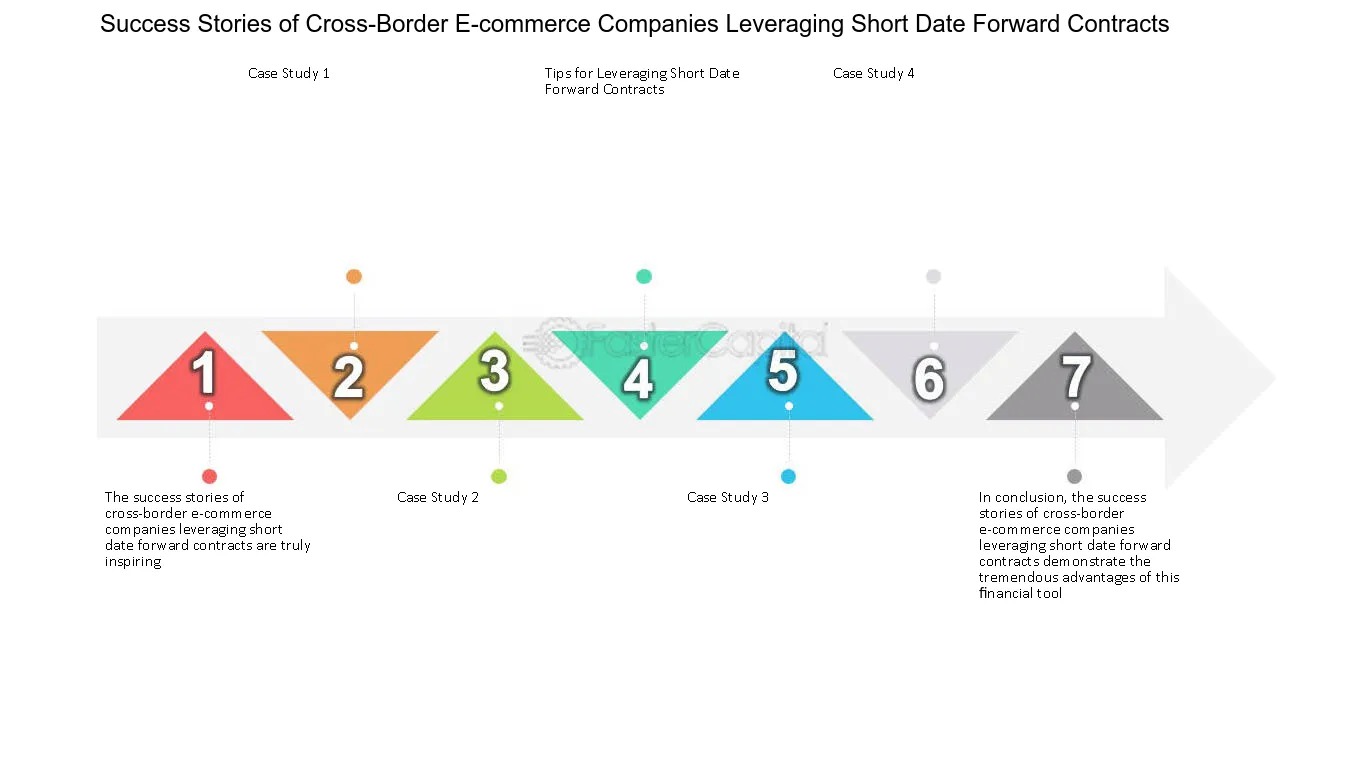Home>Finance>How To Get Out Of A Car Loan Without Ruining Credit


Finance
How To Get Out Of A Car Loan Without Ruining Credit
Modified: February 21, 2024
Need to get out of a car loan? Discover effective strategies to exit your loan agreement without damaging your credit score. Learn the best finance tips now!
(Many of the links in this article redirect to a specific reviewed product. Your purchase of these products through affiliate links helps to generate commission for LiveWell, at no extra cost. Learn more)
Table of Contents
Introduction
Having a car loan can provide you with the convenience of owning a vehicle without the upfront cost. However, unexpected circumstances or a change in financial situation may leave you wondering how to get out of a car loan without ruining your credit. While it can be challenging, there are several options available that can help you navigate this situation.
Understanding your car loan is the first step in finding a solution. Car loans typically have a fixed term and require regular monthly payments. The loan amount covers the purchase price of the vehicle, plus interest and fees. If you default on your payments or try to get out of the loan prematurely, it can negatively impact your credit score.
Before taking any action, it is essential to assess your current financial situation. This includes reviewing your income, expenses, and any other outstanding debts. By understanding your financial standing, you can determine which options are feasible for you.
In this article, we will explore various strategies to get out of a car loan without ruining your credit. These options include loan modification or refinancing, selling the car to pay off the loan, transferring the car loan to another person, voluntary repossession, negotiating with the lender, and seeking professional help.
It is important to note that each option has its own implications and considerations. You should carefully evaluate your specific circumstances and consider seeking professional advice if necessary. Let’s dive into each option and learn more about them.
Understanding Your Car Loan
Before exploring ways to get out of a car loan, it’s crucial to have a clear understanding of your loan terms and conditions. Knowing the details of your car loan can help you make informed decisions and navigate the situation effectively.
Here are some key factors to consider:
- Loan Amount: This refers to the total amount you borrowed to finance the purchase of your car. It includes the purchase price of the vehicle along with any additional charges, such as taxes and fees.
- Interest Rate: The interest rate is the percentage that is added to your loan amount, determining the cost of borrowing over time. A higher interest rate means you’ll pay more in overall interest throughout the loan’s term.
- Loan Term: The loan term is the length of time you have to repay the loan in full. Common car loan terms range from three to seven years.
- Monthly Payments: This is the amount you must pay each month to satisfy the loan agreement. The monthly payment consists of principal and interest, with a portion going towards the loan balance and the rest covering the interest charges.
- Penalties and Fees: It’s essential to understand any penalties or fees associated with your car loan. These may include late payment fees, early termination fees, or prepayment penalties.
Having a clear understanding of these factors will help you assess the financial impact of getting out of your car loan. It will also enable you to evaluate alternative options, such as loan modification, refinancing, or selling the car, to determine which approach best suits your needs and financial situation.
Remember, every car loan is unique, and each lender may have specific terms and conditions. Carefully review your loan agreement, including the fine print, and consider discussing any concerns or questions with your lender directly. By being well-informed about your car loan, you can make informed decisions to protect your credit and financial well-being.
Assessing Your Financial Situation
When you find yourself needing to get out of a car loan, it’s crucial to assess your current financial situation. Understanding your income, expenses, and overall financial health will help you gauge the feasibility of different approaches and determine which options are viable for you.
Here are some steps to take when assessing your financial situation:
- Evaluate Your Income: Take a close look at your income sources, including your job salary, any additional sources of income, and potential future changes in income. Understanding how much money you have coming in will give you an idea of what you can afford to do regarding your car loan.
- Analyze Your Expenses: Make a detailed list of your monthly expenses, including fixed expenses like rent/mortgage payments, utility bills, insurance premiums, and other loan payments. Identify areas where you can potentially reduce your expenses to free up more funds to manage your car loan.
- Review your Budget: If you have a budget in place, review it to identify areas where you can cut back on spending. By reallocating funds, you may be able to allocate more money towards your car loan payments.
- Consider Other Debts: Take into account any other outstanding debts you have, such as credit card balances or student loans. Assessing your overall debt load will help you prioritize your financial obligations and determine the impact of different options on your overall financial health.
- Calculate Your Car’s Value: Determine the current market value of your car by researching similar models and their prices. This will help you evaluate the potential proceeds from selling your vehicle to pay off your car loan.
Assessing your financial situation will provide you with a clear picture of your ability to handle your car loan. It will guide your decision-making process and help you determine which strategies are feasible and realistic given your income, expenses, and overall financial obligations.
Remember, being honest and realistic about your financial situation is essential. It’s crucial to make decisions that align with your financial capabilities and prioritize your long-term financial well-being.
Exploring Loan Modification or Refinancing Options
If you find yourself struggling with your car loan, one option to consider is loan modification or refinancing. These options can help you adjust the terms of your loan to make it more manageable and potentially save you money in the long run.
Here are some options to explore:
- Loan Modification: Contact your lender to discuss the possibility of modifying your loan terms. Loan modification typically involves negotiating changes to the interest rate, extending the loan term, or reducing the monthly payments. This can provide temporary relief or a more sustainable payment plan for your financial situation.
- Refinancing: Another option is to refinance your car loan. This entails taking out a new loan with better terms to pay off the existing one. By refinancing, you may be able to secure a lower interest rate, extend the loan term, or both, resulting in lower monthly payments. However, keep in mind that refinancing may involve additional fees and charges, so it’s essential to carefully evaluate the costs and benefits.
- Exploring Other Lenders: If your current lender isn’t accommodating your request for loan modification or refinancing, consider exploring other lenders. Different lenders may have various programs or options that better suit your needs. Shop around and compare interest rates, loan terms, and requirements to find the best possible refinancing option.
Loan modification or refinancing can be helpful in easing the burden of your car loan and making it more affordable. However, it’s essential to carefully evaluate the terms and implications of these options. Consider factors such as the impact on your credit score, any additional fees involved, and the overall cost benefit in the long run.
Before proceeding with loan modification or refinancing, gather all the necessary documentation, including your current loan agreement, proof of income, and credit history. Be prepared to provide any supporting documents requested by the lender to facilitate the process.
Remember, loan modification or refinancing is not guaranteed and may not be suitable for everyone. It’s crucial to assess your financial situation and consult with a financial advisor or loan specialist to determine the best course of action for your specific circumstances.
Selling Your Car to Pay off the Loan
If you’re looking to get out of a car loan, one option to consider is selling your car to pay off the outstanding loan balance. This option can help you eliminate the debt entirely and relieve yourself of further financial obligations associated with the vehicle.
Here’s how to go about selling your car to pay off your loan:
- Determine the Car’s Value: Before listing your car for sale, research its current market value. Consider factors such as its make, model, year, mileage, condition, and any additional features. Websites and car valuation tools can provide you with an estimated value.
- Prioritize Payoff: Contact your lender to obtain a payoff quote. This quote will detail the exact amount you need to pay in order to satisfy the loan in full. Be sure to inquire about any specific procedures or requirements for selling the vehicle while there is an active loan.
- List Your Car for Sale: Advertise your car for sale using various platforms such as online classifieds, social media, or local automotive marketplaces. Provide detailed and accurate information about the car, including its condition, service history, and any unique selling points.
- Negotiate and Finalize the Sale: Respond to inquiries from potential buyers and negotiate the price. Once you reach an agreement, arrange a meeting with the buyer to complete the transaction. Make sure to follow the necessary steps to transfer ownership legally and pay off the loan balance using the proceeds from the sale.
- Notify the Lender: Once the sale is complete, notify your lender of the transaction. Provide them with the necessary documents to confirm that the loan has been paid off in full. This will ensure that the lender updates their records accordingly and releases any lien on the vehicle.
Selling your car to pay off the loan can be an effective way to eliminate your car loan debt. However, it is essential to consider any potential shortfall between the car’s value and the loan balance. In some cases, the car’s value may be lower than the remaining loan amount, resulting in negative equity. You may need to pay the difference out of pocket or negotiate with the lender to reach a resolution.
Ensure that you have a clear understanding of the transaction process, including legal requirements, transfer of ownership, and any outstanding fees or penalties. Additionally, consider the impact of selling your car on your daily transportation needs and budget. You may need to explore alternative transportation options in the interim or purchase a more affordable vehicle if necessary.
Remember, selling your car to pay off the loan is a significant decision. It’s important to carefully evaluate your financial situation and consider consulting with a financial advisor to determine the best course of action for your specific circumstances.
Transferring the Car Loan to Another Person
If you’re looking to get out of a car loan, another option to consider is transferring the loan to another person. Transferring the car loan, also known as loan assumption or loan transfer, allows someone else to take over the responsibility of the loan while you are relieved of the financial obligation.
Here are the steps involved in transferring the car loan to another person:
- Check Loan Transfer Eligibility: Contact your lender to determine if loan transfer is allowed and if there are any specific eligibility criteria. Some lenders may have restrictions on loan transfers or require the new borrower to meet certain creditworthiness standards.
- Find a Suitable Buyer: Seek out individuals who are interested in taking over your car loan. This can be done through personal connections, online platforms, or local advertisements. Ensure that the potential buyer understands the loan terms and obligations involved.
- Negotiate Loan Transfer Terms: Discuss the terms of the loan transfer with the potential buyer. This may include negotiating the purchase price of the car, as well as the transfer of ownership and responsibility for the loan. It’s essential to be transparent about any outstanding loan balance, interest rate, and remaining loan term.
- Obtain Lender Approval: Once you have reached an agreement with the buyer, contact your lender to initiate the loan transfer process. The lender will evaluate the creditworthiness of the new borrower and determine if they meet the necessary requirements to assume the loan.
- Complete Transfer and Documentation: Work with both the buyer and your lender to complete all the necessary paperwork involved in the loan transfer. This typically includes transferring the car title, updating the loan agreements, and updating ownership records with the appropriate authorities.
- Ensure Loan Release: Verify with your lender that the loan transfer is complete and that you have been released from any further responsibility for the loan. It’s important to confirm that the lender has updated their records to reflect the new borrower as the responsible party.
Transferring the car loan to another person allows you to get out of the loan without the need to sell the vehicle outright. However, it’s essential to consider the potential risks involved, such as the new borrower defaulting on payments, as it could still impact your credit score in such cases.
Before transferring the car loan, consult with a legal professional or financial advisor to ensure that all necessary legal and financial steps are taken. They can guide you through the process, help you assess the risks involved, and ensure that your interests are protected.
Remember, loan transfers may not be suitable for everyone, and it’s important to carefully evaluate the financial stability and creditworthiness of the potential buyer before agreeing to transfer the loan.
Voluntary Repossession
When faced with the inability to continue making payments on your car loan, voluntary repossession is an option to consider. Voluntary repossession involves surrendering your vehicle to the lender to satisfy the outstanding loan balance. While it is a last resort, it can help you avoid the negative consequences of an involuntary repossession.
Here are some important points to consider about voluntary repossession:
- Contact Your Lender: Communicate with your lender to inform them of your intentions and discuss the voluntary repossession process. Ask about any specific requirements they may have and how the repossession will impact your credit.
- Arrange for Vehicle Return: Coordinate with the lender to return the car. This may involve delivering the vehicle to a designated location or having an authorized representative collect it from you. Make sure to remove all personal belongings from the car before surrendering it.
- Understand the Consequences: Voluntary repossession does not absolve you of your financial obligations entirely. The lender will sell the repossessed vehicle to recover the outstanding loan balance, and you may still be responsible for any remaining deficiency after the sale. Additionally, voluntary repossession will have a negative impact on your credit score.
- Minimize the Impact: While voluntary repossession will negatively impact your credit, you can take steps to mitigate the damage. Make sure the lender accurately reports the repossession to the credit bureaus, and consider working with them to arrange a settlement or payment plan for the remaining debt to prevent further credit damage.
- Explore Alternatives: Before opting for voluntary repossession, consider alternatives such as loan modification, refinancing, or selling the car to pay off the loan. These options may allow you to regain control of your financial situation without the severe impact on your credit that comes with repossession.
Voluntary repossession should only be considered as a last resort when all other options have been exhausted. It is important to carefully weigh the financial implications and seek professional advice to make an informed decision.
Remember, voluntary repossession will not erase your financial responsibility completely, and its impact on your credit score can last for several years. By exploring other options and seeking assistance from professionals, you may find a solution that is more beneficial in the long run and helps protect your creditworthiness.
Negotiating with the Lender
When facing difficulty with your car loan, it’s worth exploring the option of negotiating with your lender. By engaging in a conversation and explaining your financial situation, you may be able to work out a mutually beneficial solution. Negotiating with the lender can potentially lead to modified loan terms, reduced payments, or even a temporary pause on payments.
Here are some steps to effectively negotiate with your lender:
- Contact Your Lender: Reach out to your lender as soon as you realize you’re experiencing financial hardship. Explain your circumstances and express your willingness to find a solution. Most lenders have dedicated departments or representatives trained to assist borrowers in these situations.
- Provide Documentation: Back up your claims of financial hardship with relevant documentation, such as proof of income, bank statements, or any other supporting documents. This will help the lender better understand your situation and assess the options available.
- Explain Your Financial Situation: Clearly articulate how your financial circumstances have changed and impacted your ability to make timely payments. Be honest and transparent about the challenges you’re facing, such as job loss, medical expenses, or other unforeseen circumstances.
- Propose Solutions: Offer potential solutions that might work for both parties. This could include requesting a loan modification, such as a lower interest rate, an extension of the loan term, or reduced monthly payments. Showing your willingness to meet your financial obligations and providing a proactive plan can strengthen your case.
- Stay Persistent and Professional: Be persistent in following up with the lender and maintaining open lines of communication. Remain calm and professional throughout the negotiation process, even if it becomes challenging or frustrating. Remember that both parties have a vested interest in finding a resolution.
- Get Everything in Writing: Once an agreement is reached, ask the lender to provide written confirmation of the new terms or any changes to the loan agreement. This will help avoid any misunderstandings or discrepancies in the future.
Negotiating with your lender can be a viable option for finding a manageable solution for your car loan. However, it’s important to keep in mind that lenders are not obligated to agree to your proposed terms. They may offer alternative options or require specific criteria to be met before modifying the loan.
Remember, communication and transparency are key when negotiating with your lender. By demonstrating your commitment to repaying the loan and working towards a resolution, you may be able to come to an agreement that eases your financial burden and ensures you can maintain a positive credit history.
Seeking Professional Help
If you’re overwhelmed with your car loan situation and uncertain about the best course of action, seeking professional help can provide you with valuable guidance and support. Financial experts, credit counselors, and legal professionals can help you navigate the complexities of your car loan and explore the most suitable options for your specific circumstances.
Here are some professionals who can assist you:
- Financial Advisor: A financial advisor can provide expert advice and help you create a comprehensive plan to manage your car loan and overall financial situation. They can analyze your income, expenses, and debts to develop strategies that align with your goals and financial capabilities.
- Credit Counselor: Credit counselors specialize in helping individuals with debt management. They can review your financial situation, negotiate with lenders on your behalf, and develop a plan to repay your debts while minimizing the impact on your credit score.
- Attorney: In some complex situations, consulting with an attorney who specializes in consumer and finance law may be necessary. They can provide legal advice, review loan agreements, and assist with negotiating with the lender, especially in cases where there may be potential legal issues.
- Debt Relief Agency: If you’re facing overwhelming debt, a debt relief agency can help you explore options such as debt settlement or debt consolidation. They can negotiate with your creditors to reduce the amount you owe or consolidate your debts into one affordable payment.
Making the decision to seek professional help is a proactive step towards resolving your car loan challenges. These professionals have the knowledge and experience to assess your situation objectively and provide tailored solutions that could potentially save you time, money, and stress.
When seeking professional assistance, thoroughly research and select reputable individuals or firms. Check their credentials, read reviews, and verify their track record of successfully assisting clients in similar situations. It’s important to feel confident and comfortable with the individuals you choose, as you will be sharing sensitive financial information with them.
Remember, seeking professional help does come with a cost, so carefully consider your budget and the potential benefits before committing to any services. While it may require an investment upfront, the long-term benefits of expert advice and guidance can outweigh the costs.
Overall, seeking professional help can provide you with the knowledge and support needed to make informed decisions about your car loan and financial future.
Conclusion
Getting out of a car loan without ruining your credit can be a difficult and challenging process. However, by understanding your car loan, assessing your financial situation, and exploring various options, you can find a solution that works best for you.
Consider options such as loan modification or refinancing, selling your car to pay off the loan, transferring the car loan to another person, voluntary repossession, negotiating with the lender, or seeking professional help. Remember, each option has its own implications and considerations, so it’s important to carefully evaluate your specific circumstances.
Be proactive in communicating with your lender and exploring alternative solutions before you fall behind on payments. By taking action early, you increase your chances of finding a favorable resolution and avoiding more severe consequences, such as involuntary repossession or damaging your credit score.
Throughout the process, remain transparent, persistent, and professional in your communication with your lender. Consider consulting with experts such as financial advisors, credit counselors, or legal professionals to gain valuable guidance and support.
Finally, remember that ultimately, your financial well-being is the priority. Make decisions that align with your long-term goals and consider the impact on your credit and overall financial stability. With careful planning and informed decision-making, you can navigate your car loan situation successfully and minimize the impact on your credit.
Always remember to do thorough research, seek multiple opinions, and consult professionals to ensure you have a comprehensive understanding of your options and their potential consequences. With determination, patience, and a proactive mindset, you can regain control of your financial situation and work towards a brighter financial future.














